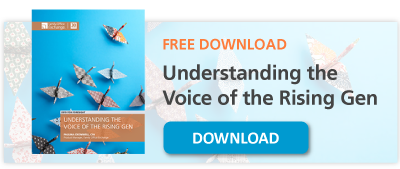Date: Apr 05 2019
There can be immense pressure surrounding the college application and acceptance process. For students, this decision is concentrated on the right school, the right academic program, and a desire for the right “fit.” For many well-meaning parents it’s important that your child is in the best possible environment that will ensure success, appropriate developmental growth and catapult them into a lifetime of personal and career success. These are weighty issues. It’s the genesis of adult life, independent of parents.
As we have all read, some parents took that duty too far. We’ve graduated from helicopter parents, to snowplow parents, to the parent that guarantees college acceptance through bribery. This recent scandal, ensuring that students from prominent families get into elite schools and research universities, strengthens an unfortunate rhetoric around wealthy families using money to influence.
While the notion of “in loco parentis” (in place of the parent) began with the early American universities, today’s effective student success models require that students take responsibility for their own behavior. Nowadays, the way educational institutions act in the best interests of students looks quite different. Through empowered choices, young adults can become good decision makers who feel personally responsible for the choices that will affect their future.
At FOX, we believe that knowledge is key to empower future family leaders and are excited to present a strong curriculum and multi-faceted engagement model to the rising generation population. As a result, we’re designing courses for a FOX Family Learning program that is rooted in strong personal identity and growth modules as well as strong leadership practices. We plan to assist emerging leaders to rise independently.
As parents, mentors, and guides it is important to identify how we can help young people travel down an informed and ethical path. What are the best resources? Where should you seek help and how do you know you have enlisted a trusted advisor?
Resources to Consider:
- Find an independent counselor who is a member of the state’s Association for College Admission Counseling (ACAC). These IECs (independent educational consultants) are required to adhere to best practices and codes of ethics.
- CollegeWise is reputable company that employs counselors and consultants with wide areas of expertise from finding the right college fit to writing college essays.
- This newly released book Countdown to College: The Essential Steps to Your Child's Successful Launch written by Monique Rinere. Rinere was the founding dean of Harvard College's Advising Programs Office at Harvard University, has a long college advisory career and is a three-time Ivy League dean. She currently serves as the Associate Vice President at The New School in the heart of Greenwich Village.
- Make the most of your networks. Most guidance counselors are well-connected to coaches. Connect with the counselors at your schools. Connect with your alma-mater. Legacy admissions based on alumni status are a safe way to utilize your university connections.
- Don’t forget the valuable resources that exist in FOXChat and FOX Networks. Members can pose a question that hundreds of other members can see, and get their guidance and resources. Remember, many others have gone through, or may be going through, the same issues.
- Use common sense. Good old-fashioned meetings, phone calls, thank you notes, and campus visits help applicants stand out, on their own. This teaches valuable life skills, ensures personal satisfaction, and a sense of achievement that money can’t buy. Use your moral compass if you are asked to do something that feels dishonest, or to excessively contribute financially.
- In tandem with the college admission search, consider aptitude testing to help the student learn more about themselves before jumping into a major life decision. Johnson O’Connor Research Foundation “is a nonprofit scientific research and educational organization with two primary commitments: to study human abilities and to provide people with a knowledge of their aptitudes that will help them derive more satisfaction from their lives by discovering their natural potential.” Knowing Thyself – will serve a young freshman well during a key transformational life stage.
Other Questions to Consider:
- Are you allowing your child to begin to make adult choices, independent of you?
- Are you accepting of the school your child would like to attend? Or are you placing unnecessary stress on getting into the “right” school?
- Have you set high expectations, and left your student to meet them? According to a blog post by EAB “…high parental expectations can be linked to better academic performance.
- How are you “letting go” and helping your child thrive separate from the family name or family money?
- How can you allow your child to spearhead this process, demonstrate leadership, organization and determination?


